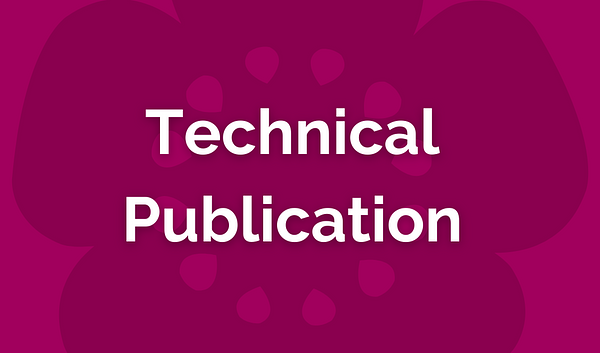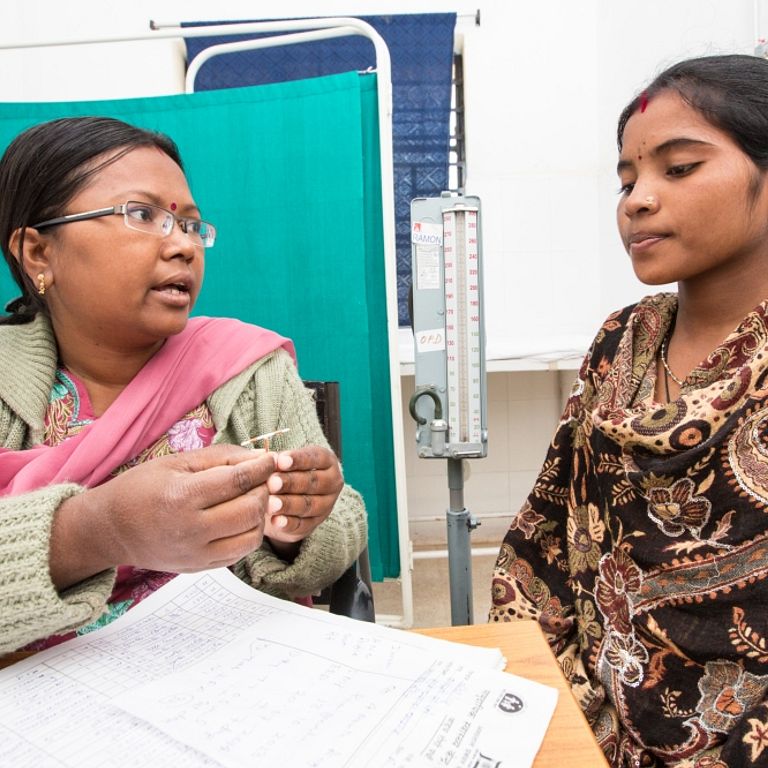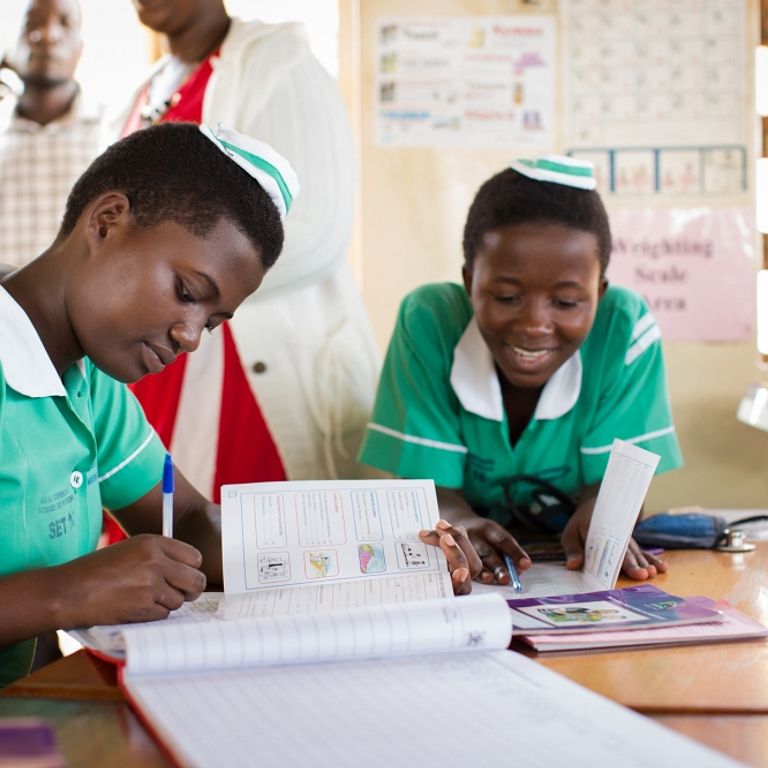Family Planning Integration in Ethiopia’s Primary Healthcare System

According to FP2030, Ethiopia has one of the highest fertility rates in Africa, with 45% of its population under age 15 and a modern contraceptive prevalence rate for married women of 40.5%. The government of Ethiopia considers family planning (FP) key to meeting UN Sustainable Development Goal 3 to avert maternal and child mortality and morbidity. It is working to improve access to FP as part of its Health Sector Transformation Plan II by fully integrating it into the primary healthcare system (PHC).
EngenderHealth collaborated with the Ethiopian Ministry of Health (MOH) to improve and strengthen the integration of FP services across Ethiopia’s PHC service delivery. Through this program, we supported the government’s efforts by undertaking a comprehensive national FP integration assessment and carrying out implementation research to generate learning on how to effectively integrate immediate postpartum family planning (PPFP) and postabortion family planning (PAFP) into existing health services.
Through the comprehensive national assessment, EngenderHealth explored the feasibility of FP integration within the current PHC, including community health services. The assessment incorporated findings from a desk review of existing data at the national and global levels, a survey of primary healthcare facilities, and interviews with key stakeholders. EngenderHealth also worked to identify current FP service integration challenges and gaps, successes, and opportunities as part of the assessment.
EngenderHealth’s implementation research focused on evaluating high-impact interventions to facilitate FP integration. We conducted this research in collaboration with MOH and in partnership with three Ethiopian universities—Addis Ababa University, Jigjiga University, and Wolaita Soddo University—in agrarian and pastoral regions of the country with low rates of modern contraceptive prevalence.
EngenderHealth employed the socioecological model to design and implement FP integration interventions to identify and address community, sociocultural, and age- and gender-related barriers to PPFP and PAFP. These interventions included providing training and support to address health facility needs and gaps in delivering PPFP and PAFP services and conducting community outreach and engagement to improve knowledge of and access to FP services. EngenderHealth, MOH, and our university partners analyzed and evaluated the impact of these interventions to inform guidance on nationwide FP integration.
EngenderHealth applied the results of the assessment and research to develop an FP Integration Intervention Package designed to complement the Ethiopian government’s existing FP Integration National Implementation Guidelines. This package aimed to support the full integration of FP into the primary healthcare system by providing key recommendations, guidance, and tools focusing on addressing sociocultural barriers to FP care and integration.
EngenderHealth collaborated with the Ethiopian MOH to improve and strengthen the integration of FP services across Ethiopia’s PHC service delivery. Through this program, we supported the government’s efforts by conducting implementation research to generate learning on effectively integrating immediate PPFP and PAFP into existing health services. Simultaneously EngenderHealth employed the socioecological model to design and implement FP integration interventions. These interventions included training and support to address health facility needs and gaps in delivering immediate PPFP and PAFP services and conducting community outreach and engagement to improve knowledge of and access to FP services.
From October 2021 to April 2023, the program supported 30 health facilities—15 in agrarian settings and 15 in pastoralist settings. The program distributed medical equipment and consumable supplies to all supported health facilities. We trained 127 healthcare providers on integrated comprehensive contraception and PAFP during this period. We trained 38 pharmacy personnel through the program on integrated pharmaceutical and logistic supply systems. Of the 17,004 clients counseled for PPFP, 17.6% accessed their method of choice. A total of 685 clients counseled for PAFP, and 84.5% of clients accessed their method of choice.


